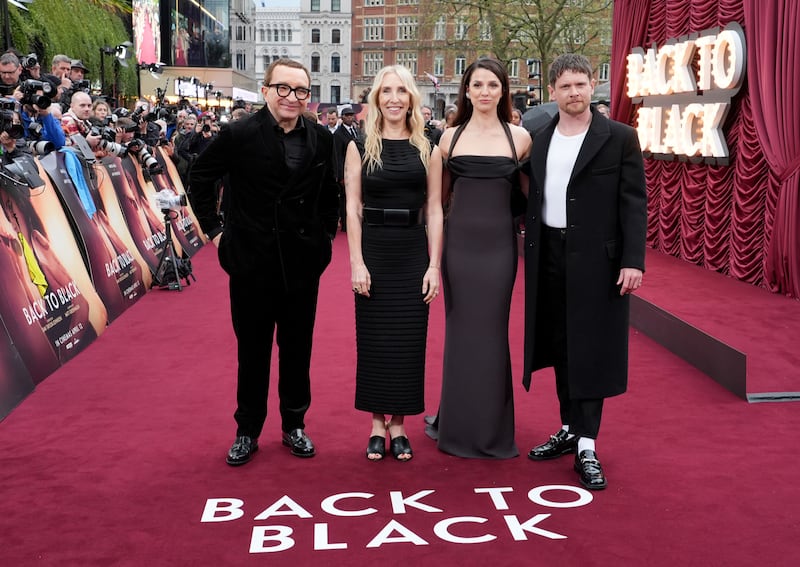Back To Black star Eddie Marsan has said there was a lack of help following his son’s diagnosis with Tourette’s syndrome.
The British actor, 56, who has appeared in The World’s End (2013) and Sherlock Holmes (2009), said there is “very little help” for children who have the condition which can cause vocal and physical tics.
Speaking to BBC Breakfast about his son’s diagnosis, he said: “You don’t realise it, do you?

“When they first do it, because all children often have compulsive disorders, they often have things that they have to do, and you think that’s just their personality.
“But it’s when it gets to be disruptive.
“And also because it’s such a misunderstood and misdiagnosed condition that there’s very little help.
“People don’t realise there’s loads of kids out there who are all suffering from this, but they don’t realise it because there’s a preconceived idea that it’s swearing, or it’s lashing out.
“They don’t realise that there’s so many other forms of it.
“And the mocking, and the social exclusion for children is terrible.”
BBC presenter Roger Johnson said he had read that people can sometimes be diagnosed following one consultation and added there’s often no follow up.
Nodding in agreement, Marsan added: “No, there’s no follow up. I mean we were lucky because Dash (Marsan’s friend with Tourette’s) had been campaigning for years and suffering for years.
“So he gave us so much information.
“But we were living in the US at the time, when we came back to the UK, there was nothing to help you cope with it.”
Marsan’s son Blu said he faced social exclusion at school due to the condition.
He said: “When I was in the younger years, from years three to six, when I was about nine onwards, you could see the real social exclusion bit where everyone’s starting to find themselves a bit more, and they’re building their own friendship circles and whatnot.
Tune in to @BBCBreakfast tomorrow morning from 8am where our CEO @EmmaJMcNally and @eddiemarsan will be discussing our recent Tourette’s awareness campaign #TourettesHurts pic.twitter.com/s4NApzUTFg
— Tourettes Action (@tourettesaction) June 19, 2024
“And then you’re sitting there with Tourette’s and ticks and making these weird noises and you’re thinking ‘Why can’t I be, so called, normal?'”
Marsan and his son appeared on the breakfast programme as part of Tourette’s Awareness month and to raise awareness for Tourettes Action’s new campaign.
The NHS website says that Tourette’s syndrome is a condition that causes a person to make involuntary sounds and movements called tics.
Physical tics can include blinking, eye rolling, jumping and vocal tics can include animal sounds, tongue clicking, grunting and swearing.
The condition usually develops during childhood and there is no cure, but it can sometimes go away completely after several years.








